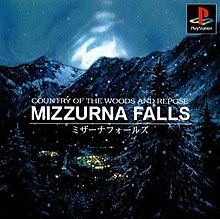흰개미과
Diaphorinae| 흰개미과 | |
|---|---|
 | |
| 아가오리콜리스 | |
| 과학적 분류 | |
| 왕국: | 애니멀리아 |
| 문: | 절지동물 |
| 클래스: | 곤충류 |
| 주문: | 디프테라속 |
| 패밀리: | 돌리코포드과 |
| 서브패밀리: | 흰개미과 슈너, 1864 |
| 속 | |
| 텍스트 참조 | |
바다파리아과([1][2][3]Diaporinae)는 바다파리과에 속하는 파리 아과이다.
속
- Acropsilus Mik, 1878년(돌리코포드과로 분류되지 않음
- 아네포리아베지, 1902년 (Diaphorinae 또는 Sympycninae)
- Nematoproctus Loew, 1857 (Diaphorinae 또는 Rhapiinae)
- Nurteria Dyte & Smith, 1980[4](Sympyninae에 속할 수 있음)
- § Palaeoargyra Meunier, 1895년
- 파즈마플렙스 Bikkel, 2005[5]
- ▶프로크리오투스 뮤니어, 1907년
- 테르피미아 Dyte, 1975[6]
- Urodolichus Lamb, 1922 (Diaphorinae 또는 Rhapiinae)
- 트리브 디아포리니 쉬너, 1864
- 아크로도세라 1922년 베커[7]
- 아프스마플렙스 그리차노프, 2010년
- 아랍 샴셰비아 나글리스, 2014년[8]
- 아시네데스 1869년 로우[9]
- 크리소투스속 메이겐, 1824년
- 크립토플렙스 리히트워트, 1898[10][9]
- 하이포러스 메이겐, 1824년[11]
- 두비우스 Wei, 2012[12]
- 에미라토미아 나글리스, 2014년[8]
- 팔부리아 Dyte, 1980[13]
- 1857년, Lyroneurus Loew(때로는 Diforus의 아속, 아마도 Crysotus의 동의어)
- 멜라노스톨루스 코와즈, 1884년[14]
- 오스테니아 1901년 허튼[15]
- 샴셰비아 그리차노프, 2012
- 트리고노세라 베커, 1902[16]
- 아르기리니네그로보프, 1986[17]
레퍼런스
- ^ Grichanov, Igor Ya. (2017). "Alphabetic list of generic and specific names of predatory flies of the epifamily Dolichopodoidae (Diptera). 2nd ed" (PDF). Plant Protection News, Supplements. St.Petersburg: All-Union Research Institute of Plant Protection (VISR) (23). doi:10.5281/zenodo.884863.
- ^ D'Assis Fonseca, E.C.M. (1978). Dolichopodidae (Diptera, Orthorrhapha, Brachycera) (Handbooks for the Identification of British Insects 9/5) (PDF). London: Royal Entomological Society of London. pp. 1–90. Retrieved 20 January 2020.
- ^ Yang, D.; Zhu, Y.; Wang, M.; Zhang, L. (2006). World Catalog of Dolichopodidae (Insecta: Diptera). Beijing: China Agricultural University Press. pp. 1–704. ISBN 9787811171020.
- ^ Dyte, C. E.; Smith, K. G.V. (1980). Crosskey, R.W. (ed.). Family Dolichophididae. in A Catalogue of Diptera of the Afrotropical Region. London: British Museum (Natural History). pp. 443–463. ISBN 978-0565008215.
- ^ Bickel, D. J. (2006). "A new genus, Phasmaphleps, and new species of Cryptophleps Lichtwardt from the Western Pacific, with notes on Australasian Diaphorinae (Diptera: Dolichopodidae)" (PDF). Bishop Museum Occasional Papers. 84: 17–34. Retrieved 22 September 2015.
- ^ Dyte, C. E. (1975). "Family Dolichopodidae". Catalogue of the Diptera of the Oriental Region. 2: 212–258.
- ^ a b Becker, T. (1922). "Dipterologischen Studien. Dolichopodidae. B. Nearktische und Neotropische Regions". Abh. Zool.-Bot. Ges. Wien. 13 (1): 395.
- ^ a b Naglis, S. (2014). "Order Diptera, family Dolichopodidae. Two new genera of the subfamily Diaphorinae." (PDF). In van Harten, A. (ed.). Arthropod Fauna of the United Arab Emirates. pp. 725–731. doi:10.5167/uzh-109651.
- ^ a b Bickel, D. J. (1996). "Australian Asyndetus Loew and Cryptophleps Lichtwardt (Diptera : Dolichopodidae), with notes on the Oriental and western Pacific faunas". Invertebrate Taxonomy. 10 (6): 1151–1170. doi:10.1071/it9961151.
- ^ Lichtwardt, B. (1898). "Cryptophleps novum genus Dolichopodidarum". Termeszetr. Fuz. 21: 491–493.
- ^ Meigen, J. W. (1824). "Systematische Beschreibung der bekannten europaischen zweiflugeligen Insekten". Vierter Theil. Schulz-Wundermann, Hamm.: xii + 428 pp.
- ^ Wei, L. M. "The evolutionary significance on fr/fa ratio of Chrysotus Meigen (Diptera, Dolichopodidae, Diaphorinae), with descriptions of one new genus and five new species". Acta Zootaxonomica Sinica. 37 (2): 611–622.
- ^ Dyte, C. E. (1980). "Some replacement names in the Dolichopodidae (Diptera)". Ent. Scand. 11 (2): 223–224. doi:10.1163/187631280X00545.
- ^ Kowarz, F. (1884). "Beiträge zu einem Verzeichnisse der Dipteren Böhmens. IV. (Anm.: Fortsetzung)". Wiener Entomologische Zeitung: 45–57. Retrieved 1 January 2016.
- ^ Hutton, F. W. (1901). "Synopsis of the Diptera Brachyera of New Zealand". Transactions and Proceedings of the New Zealand Institute. 33: 1–95. Retrieved 22 September 2015.
- ^ Becker, T. (1902). "Ägyptische dipteren". Mitteilungen aus dem Zoologischen Museum in Berlin. 2: 1–66. Retrieved 22 September 2015.
- ^ Негробов, О.П. (1986). "О системе и филогении двукрылых сем. Dolichopodidae (Diptera)" (PDF). Энтомологическое обозрение (in Russian). 65 (1): 182–186.
- ^ Parent, O. (1934). "Additions a la faune ethiopienne (Dipteres: Dolichopodides)". Bulletin de la Société entomologique d'Égypte. 18: 112–138.
- ^ Van Duzee, M. C. (1929). "Tropical American Diptera or two-winged flies of the family Dolichopodidae from Central and South America". Proceedings of the United States National Museum. 74 (10): 1–64, 2 pls. doi:10.5479/si.00963801.74-2755.1. hdl:10088/15793.
- ^ a b Van Duzee, M. C. (1930). "Dolichopodidae". Diptera of Patagonia and South Chile. British Museum (Natural History). 5 (1): 1–92.
- ^ Brethes, J. (1924). "Sur quelues Dipteres Chiliens" (PDF). 28. Revista Chilena de Historia Natural: 104–111. Retrieved 22 September 2015.


